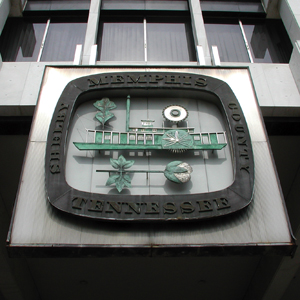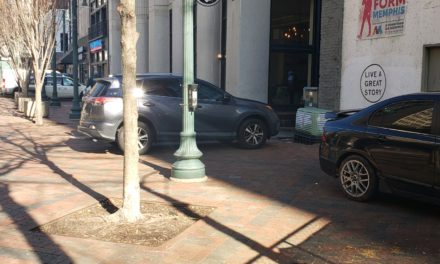
City of Memphis is the Rodney Dangerfield of government.
Speakers at Memphis City Council and commenters on The Commercial Appeal website rail about City Hall corruption although no one has been charged with a crime in decades.
Business leaders complain about high taxes in City Hall but fail to walk across Civic Center Plaza to deliver the same message to Shelby County Government, whose tax rate is about 30 percent higher than City of Memphis.
The city property tax rate was reduced from $3.43 in 2007 to $3.11 by 2012, and no one in City Hall can remember getting a thank you letter for the cut although the angry emails and letters poured in when the tax rate was increased to $3.40 in 2013. While conventional wisdom is that city property taxes are at their all-time high, the tax rate was $3.74 when Republican Wyeth Chandler was mayor in 1980.
False Economy
There are Memphians who email Council members that they are moving out of Shelby County to DeSoto County out of frustration about their tax burdens, but in truth, the tax burden is proportionally more there.
The tax burden for residents of Southaven is $1,546.60 (assumptions: a couple with one child with a per capita income of $62,483 and owners of a home valued at $128,774). Meanwhile, Memphians pay only $1 more a day in taxes than Germantown, which has the second highest tax burden in Shelby County after Memphis.
In fact, according to University of Memphis’s Sparks Bureau of Business and Economic Research, City of Memphis isn’t even in the top 10 for the largest tax burden in the region. The first seven places with the biggest tax burdens are in Mississippi: Coldwater, Holly Springs, Senatobia, Unincorporated Tate County, Potts Camp, Southaven, and Byhalia. The final three in the top 10 are Marion, Arkansas; Olive Branch, Mississippi, and West Memphis.
Suburban residents assail City Council members for wasting money and for services that cost too much, although Memphis spends less on its services per capita than Germantown, Collierville, Bartlett, and Shelby County. If anything, Memphis is police and fire departments poor and most other city services are underfunded when compared to comparable cities, notably libraries, parks, and anti-blight programs.
For those who are always thinking that Shelby County Government must just be better at managing money than City of Memphis, they should just check the numbers. The median value of a house in Memphis is $95,900, and for Shelby County, once the suburbs are added, it’s $132,700. Its results in a huge difference in property tax revenues that gives county government a leg up when it comes to putting together a budget.
Then again, some people attempt to draw conclusions about city governments’ efficiency from the fact that Memphis’ property tax rates are higher than Nashville. But that too isn’t about management; it’s about math. If Nashville had the same house prices as Memphis – rather than about $165,000 – its tax rate would be as high as the cumulative city-county tax rate in Memphis. Or put conversely, if Memphis had the same house values as Nashville, its property tax rate would be about half of what it is now – $1.70 rather than $3.40.
Too Few Sources of Income
Memphis provides $23 in per capita funding for libraries compared to $35 in Atlanta, $37 in Nashville, $74 in Birmingham, and $78 in St. Louis. City funding for public transit falls below its peers, and it would take a $20 million increase for it to move more toward the middle of its peer cities. In a ranking of 88 cities, Memphis is next to last in per capita funding for parks at $27, compared to the overall average of $82.
City of Memphis gets $347 million from its two major revenue sources – property taxes and sales taxes – but all of that money still falls $52 million short in funding the police and fire departments’ budgets.
Meanwhile, the controversial PILOT program waives about $40 million a year in city taxes, and Memphis and Shelby County continue to approve more of the business incentives than all other major cities in Tennessee combined despite the lack of a rigorous, unbiased, scholarly analysis to determine if they are effective.
Between 2008 and 2013, property tax revenues fell from $252 million to $244 million while sales tax revenues were falling from $49.4 million to $44.7 million.
The Iceberg Off The Forward Deck
It was into this challenging context that the crises in pension funding and retiree health costs exploded this year, threatening to bring city government’s fragile financial house of cards crashing to the ground.
Even with major surgery to the city’s pension plan and to the health benefits of retirees, city government will need to find approximately $50 million next year to keep the crisis from becoming a catastrophe.
In light of these realities, it’s no wonder that tempers are short and political talking points are at a premium during city government’s budget hearings, which now seem to never end. For example, City Council makes major decisions affecting the budgets year-round, and it’s at about the time that the Wharton Administration distributes its budget manual to its managers for next year’s budget hearings.
More and more, budget hearings are an exercise in selecting the best options from a list of poor ones, but in light of the realities of the city’s financial situation, it’s nothing short of remarkable that the city’s ship of state is still afloat at all.
***
Join us at the Smart City Memphis Facebook page for daily articles, reports, and commentaries that are relevant to Memphis.





